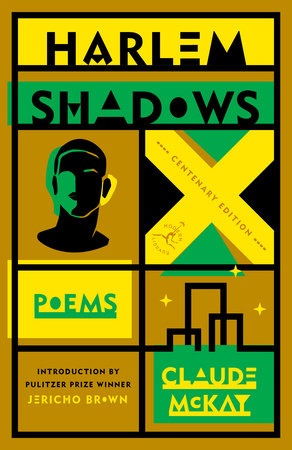Harlem Shadows
Poems
Claude McKay
Paperback
January 11, 2022 | ISBN 9780593242681
AmazonBarnes & NobleBooks A MillionBookshop.orgHudson BooksellersPowell'sTargetWalmart
Ebook
January 11, 2022 | ISBN 9780593242698
AmazonApple BooksBarnes & NobleBooks A MillionGoogle Play StoreKobo
About the Book
ONE OF THE MOST ANTICIPATED BOOKS OF 2022—Vulture
With pure heart, passion, and honesty, Claude McKay offers an acute reflection on the complex nature of racial identity in the Caribbean diaspora, encompassing issues such as nationalism, freedom of expression, class, gender, and sex. The collection’s eponymous poem, “Harlem Shadows,” portrays the struggle of sex workers in 1920s Harlem. In “If We Must Die,” McKay calls for justice and retribution for Black people in the face of racist abuse.
Juxtaposing the cacophony of New York City with the serene beauty of Jamaica, McKay urges us to reckon with the oppression that plagues a “long-suffering race,” who he argues has no home in a white man’s world. Poems of Blackness, queerness, desire, performance, and love are infused with a radical message of resistance in this sonorous cry for universal human rights. Simultaneously a love letter to the spirit of New York City and an indictment of its harsh cruelty, Harlem Shadows is a stunning collection that remains all too relevant one hundred years after its original publication.




